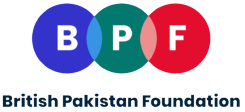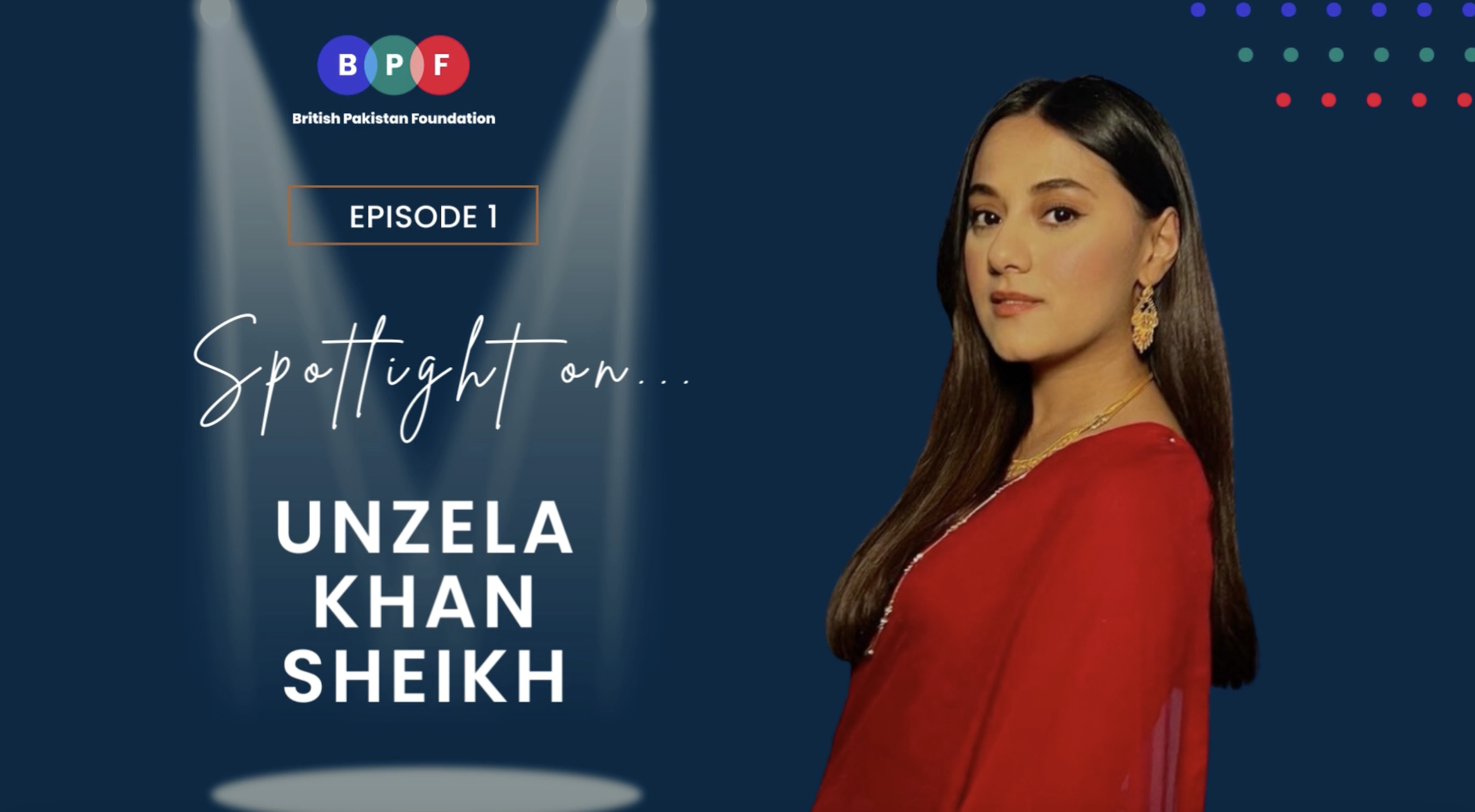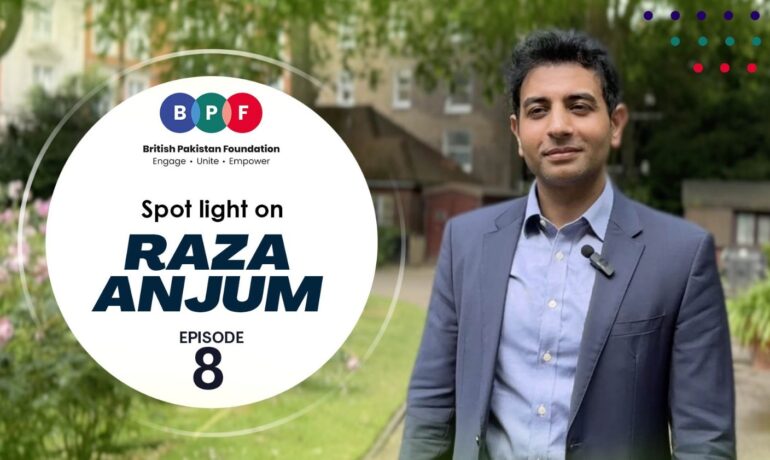Spotlight On Unzela Khan Sheikh
Second generation British Pakistani journalist, Unzela Khan Sheikh has just published a children’s book about Pakistan during her maternity leave for her new baby. The book entitled Pakistan, I’ll Be Back is a celebration of her Pakistani heritage, centred around the main character of a little girl who visits Pakistan for the first time. Based on her own experiences, Unzela wants the book to keep the culture alive for her own family and for future generations of British Pakistanis.
We put the Spotlight on Unzela, discussing her new book, her take on identity and more!
You have been a journalist for years. What inspired you to create and write your book Pakistan, I’ll Be Back?
I’ve always wanted to write a book! I just didn’t know what I would be writing about, but since becoming a mother I realised exactly what I’m passionate about and what I want to pass on to my daughter. As a journalist, I love hearing other people’s stories but this time I thought I really need to share my own.
Tell us more about your journey creating the book?
I started the process in March this year on maternity leave and I never actually thought I would publish it on Amazon. It was more a story for myself and my daughter that I would have shared with her one day. But it was one of those things that just fell into place, I quickly found an illustrator who understood exactly what I wanted and then realised I can actually self-publish and share this with parents like myself! I guess it just all came together smoothly Alhumdullilah.
Can you tell us more about what happens in the book, such as the main character and her journey?
The story focuses on Anam Khan (at home my family call me Anna, as that’s my nickname so I chose a name similar to mine) who goes to Karachi for the first time – she’s a British Pakistani and has never been, which I feel resonates with a lot of children. On her trip she spends time with her family out there, sees all these exciting places and visits places that she had heard about through her mum. In the end she understands that although she was born and brought up in the UK, she has a huge connection to Pakistan that she didn’t fully explore earlier.
What is your personal relationship with Pakistan as a country and were these experiences formative in creating the book?
The whole book contains my experience, visiting Burns Road, Tariq Road, Do Darya, Karachi University – these are all places I visited on my trips and I’ve created the book to reflect that.
As a second-generation British Pakistani, how would you define your identity?
I feel like I am very very desi. I was born and brought up in North London but my language, food and upbringing has been very Pakistani in the most beautiful way. My day to day life is definitely more Pakistani than British without even trying! Whether it’s the music I listen to, the dramas I watch or the style of my cooking, it’s all very Pakistani. My British side comes out a lot more at work though, or in other ways such as the clothes I wear and having a very strong north London accent!
How has your identity evolved through the course of your life?
When I was in primary school I wouldn’t be outwardly Pakistani, I would be embarrassed of our beautiful clothes and would anglicize my name and not want to speak Urdu in front of classmates. But as I’ve grown older, I proudly speak my mother tongue and love dressing up and going out in Pakistani clothes. My confidence in my culture has grown so much as an adult.
How did this impact your book?
Well, unlike reality, Anam Khan is vocal and proud about wanting to explore her culture – this is something that I wanted to portray so that kids who were brought up like myself are also unashamed of their culture.
What do you hope to achieve through your book?
I hope kids living in Western countries will take an interest in Urdu as well as visiting Pakistan.
What has been your daughter’s response/reaction to the book and story? She’s only 10 months old, so far she loves the pictures! I can’t wait to put a copy on her bookshelf as she grows older.
How do you hope it will positively impact her?
I hope it will encourage her to speak to me in Urdu and to be excited about trips to Pakistan!
What is it that you wish you had growing up that would have made it easier to understand your identity and culture more?
Books like these in our school libraries, as if I had seen something like this I would have been so excited. Not having diverse books in our schools shuns out cultures and makes you feel like your life is not the norm.
How do you stay connected with your Pakistani heritage and share that with your family?
I speak to my daughter in Urdu which helps remind myself firstly that I am Pakistani, and secondly helps her stay connected. I know one day she will appreciate knowing another language, just as I do.
What kind of challenges did you face growing up as a British Pakistani in the UK?
Pronouncing my name right has been a big challenge, initially I started to anglicize it at work and school, I would tell them my nickname rather than my actual name to make it easier for others (although my nickname, Anna, is pronounced Un-na). But after second year university I realised I need to reclaim and be proud of my name as it’s my identity! Which is why I use that name proudly in publications, people will eventually learn.
If you could give one piece of advice to young British Pakistanis struggling to connect with their roots, what would you say?
Your heritage is something to be proud of and as you get older you’ll realise the importance of it more and more – I know a lot of British Pakistanis struggle as they were not able to learn to speak Urdu, but it’s never too late! Being British Pakistani means you are of two halves, British and Pakistani, don’t let go of the second half because that is literally your identity.
As the Race and Diversity Editor for MyLondon, what kind of changes need to come about in order to encourage more diversity and celebrate that people in the UK have various identities, which needs to be more widely accepted?
Diversity starts at school, kids are so impressionable and if the syllabus and libraries include diverse books with characters from different cultural backgrounds as the norm, then we will have acceptance. Kids will finally take an interest in their heritage if they aren’t made to feel like the outsider.
Unzela will also be at Westfield Stratford on 14th August with her own book stall for Pakistan Independence Day, so pop by for free henna, buy the book and chat to Unzela about culture and identity.
The book is also available to buy on Amazon.
Interview by Fariha Sabir-Bajwa




